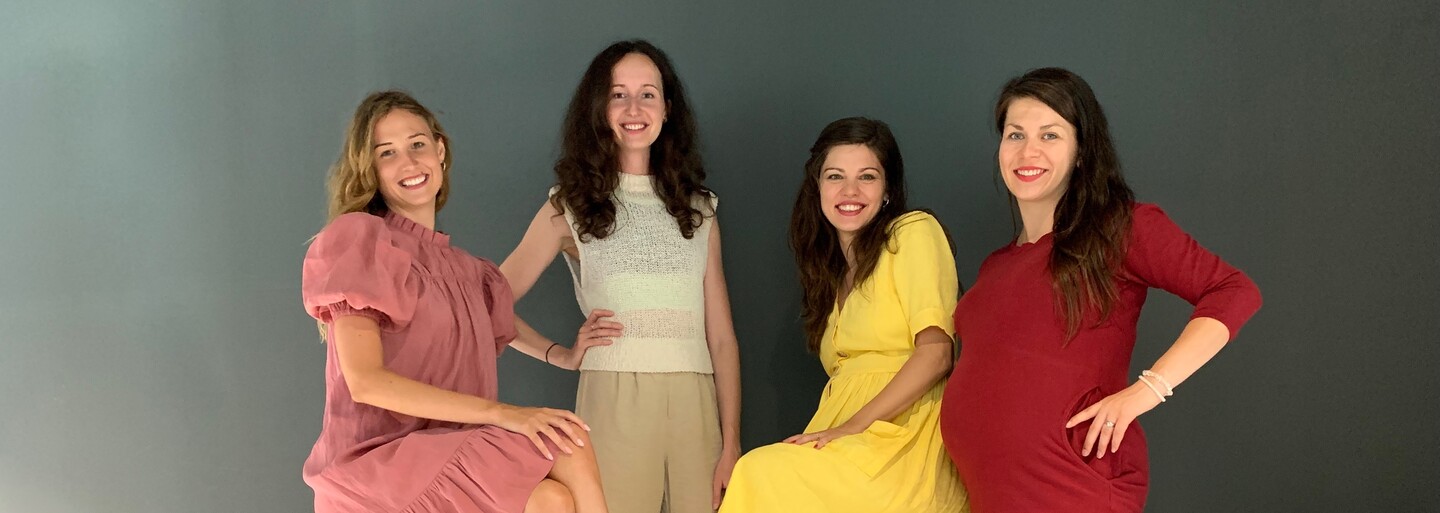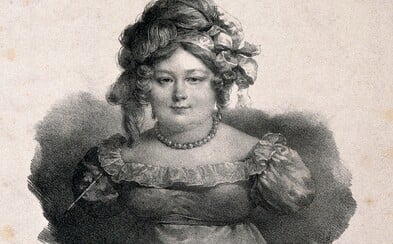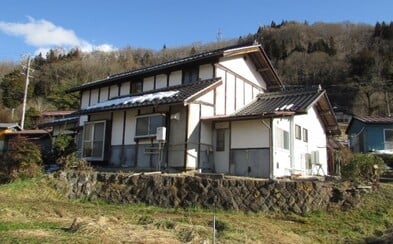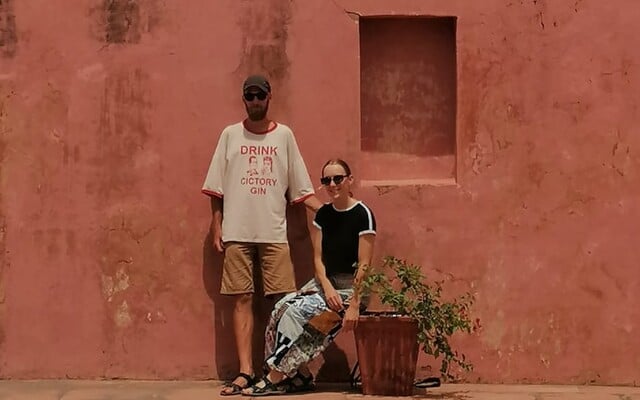 Latex model Natália: It turns me on to be a live f*ck doll. I can turn into a completely different person
Latex model Natália: It turns me on to be a live f*ck doll. I can turn into a completely different person
Latex model Natália: It turns me on to be a live f*ck doll. I can turn into a completely different person
Latex model Natália: It turns me on to be a live f*ck doll. I can turn into a completely different person
Not Your Secretary. On Female Entrepreneurs Helping Women Break Into the World of Angel Investing.
Four founders have created a purely women's investment club that supports startups in the region of Central and Eastern Europe
If problems persis, please contact administrator.

According to a report by European Woman in VC, only 1% of all the money invested last year, was invested in start-ups with purely female teams. On top of that, women represent only 16% of all investors in the Central and Eastern European regions.
Four Slovak women decided to take on this challenge and improve the situation for women in the financial segment, when an idea was born, to create a women-only investment club. Their project Lumus Investment focuses on supporting start-ups at their early stages, the so-called angel investing, within the CEE region.
Within a year, they built a network of female investors and supported three successful start-ups – Zenoo, Houston and Bikefair.
How did your quartet come together and what was the biggest impulse for starting Lumus Investment?Lucia Cerchlan: The idea of founding Lumus came about when I met Zuzka Zamborska, while living in San Francisco. At that time, I worked for Slido, the company which expanded from Slovakia to the USA. Zuzka and I talked about not knowing many female investors and the different challenges that are preventing women from accessing investment opportunities.
We saw a gap in the market when it came to women in the investment sphere, and that inspired us to start something like Lumus – a club that would focus on female investors in the Central European region. In addition to my work with Lumus, I currently work as Head of Research at a fintech company in London.
A pivotal report from last March shows, that in the Central European region women account for only 16% of all investments made.
Zuzana Zamborská: Lucka and I have similar focus within Lumus, we both specialize in start-ups. I myself have helped with the expansion of several start-ups, both to the European market and to the United States.
Terézia Jacová: I worked for Neulogy Ventures in Bratislava, which is a venture capital fund that supported start-ups at their early stage. Lucia and Zuzana approached me with the idea of creating a women's investment club, and while they worked on supporting start-ups, I contributed the perspective of the other side, the side of investors.
Besides just having the expertise to join the project, the fund where I worked employed only two female investors, so they approached me at the right time, when I myself was addressing the question of why that’s the case and what could be done about it.
Vladimíra Činčurová: I was the last one to join the team. I worked in co-workings, where I oversaw the process of designing and carrying out activities for start-ups, like events and competitions. I was also aware of the absence of female start-ups as well as female investors. For example, when we wanted to include female investors in the jury for competitions, there were, simply, so very few of them.
I am currently working at Microsoft, where I oversee a start-up program in the Czech Republic and Slovakia, connecting start-ups with accelerators, incubators, and hedge funds. At Lumus, I'm in charge of marketing.
When you founded Lumus, did you look at statistics, for example, what percentage of world’s investors are women?Terézia: On one hand, I saw the reality of the situation. I worked at a fund with only two women. On the other hand, I am a member of European Women in VC, where I met pretty much all of my European female colleagues from the funds and discovered we were a truly small cohort. We met once or twice a year. Precisely because there were so few of us, we functioned as a community within which we cooperated.
The statistics then only confirmed the feeling I already had.
Vladimíra: When we started, there wasn’t enough data available about female investors. A pivotal report was issued last March, which showed, that in the Central European region, women account for only 16% of all investments made. When we look at Scandinavia, the number of female investors is already at 20%, and in the USA, for example, the number is even higher, at 30%. So we definitely see room for improvement.
Although we make up about 50% of the population and are the dominant force when it comes to purchasing decisions, there are very few of us occupying senior positions
Zuzana: There is limited number of women not only in the field of investment, but also within the entire financial sector. Although we make up about 50% of the population and are the dominant force when it comes to purchasing decisions, there are very few of us occupying senior positions and we are often left out of the important decisions. We are familiar with the problem of the absence of women in the financial sphere from our own experience. There is only a handful of women in the meetings. Working in a fintech company, I was mistaken for a secretary couple of times.
Terézia: This happened to me too a few times. They asked me to make them coffee.
Do you think there is a specific reason why the situation is the way it is?Terézia: We have never run a men's or mixed investor club, so I can't compare the ways in which women and men make their investment decisions. On behalf of our investors, I can say that they are very active and often go above and beyond just looking for investment opportunities.
They try to help us outside of the investing itself. For example, if the investor is a lawyer, she will offer us help with opening a branch abroad. They are all very helpful, they want to be actively involved beyond just expanding the range of their passive income.
Lucia: I would turn the question around a bit and rather open the topic of women’s access to investing. Talking from experience, it often happened, that they didn't know the people involved in start-ups, and they didn't know about these opportunities. They also had to learn to recognize which start-ups have potential. We want every woman who is interested in investing to have the opportunity to be educated within the area.
Zuzana: We have a condition that we invest in start-ups that are connected to our region. Many of our investors are already connected to it in some way. Some live abroad but want to return at some point in the future. They often consider their investment for a long time and wait for the right investment to be their first. Once they start, it's much easier.
Terézia: When we talked to them, they told us that they the lacked space and the community to invest. This led us, quite organically, to set up meetings for our investment club. One of the added values is the network of contacts that they have created among themselves and that they benefit from, beyond the start-up investing itself.
Lumus focuses on arranging interesting investment opportunities within start-ups, and on community angel investing, i.e. investing in start-ups at its early stages. Do the founders reach out to you themselves?Lucia: Start-ups reach out themselves, and then we check them out. Together with potential investors, we take interest in who their founders are, what their idea is and what their work within the start-up itself looks like. We are looking for something unique that no one else offers. We talk to them about this, and then so does our invited expert.
Vladimíra: We focus on start-ups with connections to the region of Central and Eastern Europe, that looking for an investment between 50 and 250 thousand euros. A common misunderstanding is that because we are a women's investor club, female investors only want to invest in the start-ups with female founders. This is not the case. We have two start-ups with male founders and one mixed – founded by a couple, a man and a woman – within our portfolio.
What is the main criterion when deciding whether to cooperate or not? Lucia: Our investors are among their first investors. At a stage when they do not yet have paying customers and only have a very small number of clients, the biggest criterion is the founding team. What are their motivations, what have they done before and to what extent are they experts in the sector within which they work?
This is about 80% of what investors consider when making decisions. Together, we try to find out if they are capable of building and sustaining something as difficult as a start-up. The remaining 20% is considering how big is the market where the founders operate and what potential the product that they are working on has.
So start-ups don't have to have any convincing economic results to apply for investment?Lucia: This phase is called angel investing because investors believe that the founders will be able to manage their investment. Here is where we have taken advantage of a gap in the market, with the initial investments ranging from 50 to 250 thousand euros.
Terézia: Most funds enter companies based on some first income or turnaround. Investors from our club enter these companies a little earlier. It's riskier, but it should be all the more profitable.
Angel investing is one of the riskier investments. How do your investors perceive the potential risk?Terézia: We educate our investors that these are very risky investments, that it should not be the primary source of their income and that they should not invest, for example, family savings. We also advise against investing the money they might need in three to five years. This is not the type of safe investment that banks offer. That is also the reason why banks do not invest in start-ups at such an early stage.
We have set the lower limit of investments at 5,000 euros. I don't want to say it's small, but it's an amount, that's a good start for new investors.
We remind them to get more than one opinion. I think a lot of them proceeds this way. When we send them investment proposals, they go through them with other people. However, it is also necessary to always account for the possibility, that the money may not return.
Zuzana: That is why we set the lower limit of the investment at 5,000 euros. I'm not saying it's small, but it's an amount, that's a good start for new investors. After all, it's not 250,000 euros.
Do you have statistics on how many of the registered start-ups will be able to obtain an investment?
Lucia: It's around 1% so far. In my opinion, this number makes sense, as we have start-ups varying in quality reaching out to us.
What does cooperation with a start-up look like after the investment?Zuzana: We, as well as our community, try to help them. If the founders have any needs, they will write to us, and our network is trying to help them find a solution. In addition, they are required to send us their results on a monthly and quarterly basis.
Many investors want to stay close to the start-up that they have invested in and help, whether it is with expansion to another country or with legal matters.
Slovakia is mostly on the tail, when it comes to statistics that show how much financial support start-ups receive. Why isn't the start-up ecosystem in our country more similar to the one in the USA?Lucia: There are many reasons for that. It's the investment ecosystem itself, the start-ups’ plans for what kind of companies they want to build, and, of course, the size of the market. America is a billion-dollar market, and we are tiny.
In my opinion, being the founder of a start-up in the Central European region is an advantage, because especially since the last year, the region has been gaining attention of global investors.
However, what is interesting and currently happening in our region is that funds from America or Western Europe are starting to turn towards our region for two reasons. The first is, that we have a very well-educated talent, and the second is that the history of investments is not so long, funding rounds are much shorter and ultimately it is much cheaper for them to invest in a region where valuation is not as inflated as it is, for example, in the USA.
In my opinion, being the founder of a start-up in the Central European region is an advantage, because especially since the last year, the region has been gaining attention of global investors. I think that in the coming years we will see a very interesting development in terms of investments in our start-ups. For example in the Czech Republic, the start-up Rosum on which foreign partners participated, received a 100-million investment.
In addition to investment opportunities, you often mention the need for education. You have mentioned a couple of times in the interviews, that you plan to establish Angel Academy. What stage are the preparations in?Terézia: Education is one of the basic pillars on which we want to build. At the beginning, when we did our research and interviewed potential investors, we realized that they had little information about investing.
We want our investors to not be afraid to invest beyond the opportunities they will get through Lumus. The start-up ecosystem will work better if we have more angel investors.
Vladimíra: We have three basic pillars, through which we would like to reduce barriers for women that want to become angel investors. The first is education, as this still seems to be the biggest barrier, when it comes to why women have not started their investment journeys.
The second pillar is the community, i.e., connecting experienced investors with novice investors. The third is the presentation of interesting start-ups that are currently seeking funding. Angel Academy is just one of the projects. We also offered a program, a three-part series of community events, each with a different theme, but always from the world of investing and start-ups, attended by interesting guests.
We operate as a closed club for our investors. We want women to get to know each other and benefit from the network we have established in Lumus.
Terézia: We operate as a closed club for our investors. We want women to be able to get to know each other and benefit from the network we have established in Lumus. One of the biggest added values of our investment club is the community itself.
Vladimíra: We want to have an exclusive community, so we don't do any mass events. We want to make sure that women feel safe during the events, they are not afraid to ask questions and that they get the most out of it.
What would you like to focus on in the future?
Lucia: We want to bring as many women into angel investing as possible. The potential is huge, and I think we are still only at the beginning. It is important for us to position ourselves as an angel club that is extremely helpful to all the founders of the start-ups we work with.
Zuzana: I think that the more women there will be among investors, the more women will be among the founders of start-ups and the number of products within the women's segment will grow proportionally to that. We are approached by female founders 90% of the time, so we think that over time, the community of women within the industry will grow.
If problems persis, please contact administrator.












